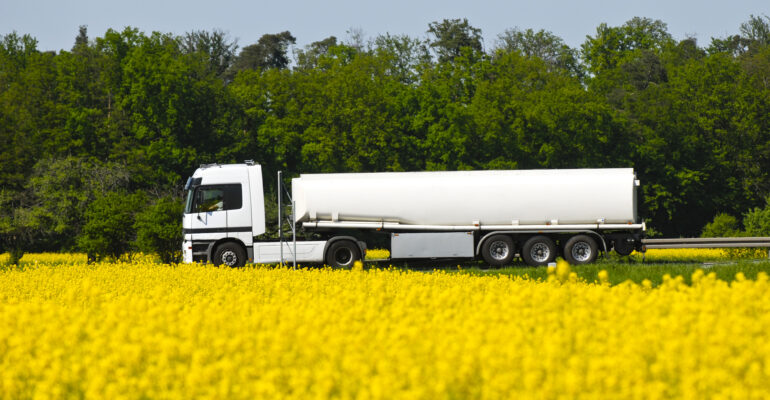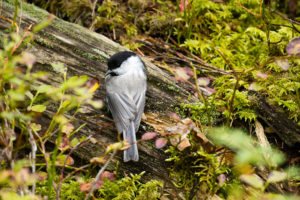French NGOs fire back against the French biodiesel lobby
A political debate about where renewable energy is heading post-2020 has started, so it’s not a coincidence that the biofuels industry is pulling out some big guns to extol its merits. The Réseau Action Climat (RAC), France nature environnement; the Fédération nationale d’agriculture biologique; Oxfam France and La Confédération paysanne, have just fired back with some weapons of their own.
Some biofuels can produce 80% more greenhouse-gas emissions than diesel
A recent study from the European Commission is not the first to point out the negative impact that biofuels can have on the climate. When looking at indirect land change, average biodiesel greenhouse gas emissions are about 80% higher than the diesel it’s supposed to replace in the name of reducing emissions.
On top of this, there’s a long list of scientific studies which stress the urgency to assess not only the production life cycle of biofuels, but also the industry’s impact on land use. Biodiesel can be produced from plant oils such as French rape seed or imported palm oil from third countries. But taking land to plant crops for biofuels instead of food in Europe, as has been happening in France, means that more crops must be grown somewhere else in the world. This has and is leading to the destruction of forests or ‘land grabbing’ of land surfaces with the excuse that they are “marginal” but which in reality are often are very valuable to local communities. On top of the climate impacts, environmentally, this has and is having a catastrophic impact.
Biofuels destroy local livelihoods
European biofuels have lead to the displacement of populations and the destruction of local livelihoods. EU policies which support the biofuels industry have artificially increased the demand for agricultural raw materials, therefore increasing the volatility of food market prices.
The consequences have been dramatic for the poorest populations in the South, where almost 75% of budget is devoted to food. Because of these serious issues, ten international organizations, including the World Bank, already indicated in 2011 that G20 states should remove all subsidies to biofuels.
But the French biofuels industry would like us to believe that this isn’t necessary and that it supports itself independently. However, for many years it has received more support from the state than what they actually invested themselves. The tax exemptions they have received between 2005 to 2014 amounts to 3.6 billion, 2.3 billion of which were dedicated to the biofuels sector. This is what the Court of Auditors, a French administration, is saying, not NGOs.
The reality is that the average French taxpayer is paying a high price to finance a polluting industry which is simply economically unfeasible.
Avril, the animal feed leader
Diester, another land based biofuel, has a huge impact on the production of something called ‘oil cakes’ which are used in animal feed. Because of the volume that must be drained, the future of diester depends on an animals ability to digest these oil cakes. It’s because the Avril Group has positioned itself as the leader in animal feed and aims to develop factory-farms in order to sell off its stocks. The consequences are animals staying confined inside eating oil cakes instead of grass…
Learning from past mistakes
The EU must learn from the failure of existing policies by giving up on binding rules that have incentivized and driven the consumption of land based biofuels. Instead, it must aim for an ambitious political framework which promotes public transportation, enhances vehicle efficiency, and only supports the production of truly renewable energies. In the end, these are less costly and create more job opportunities than the biofuels industry ever will.
Shortly after the ratification of the Paris Climate Change Agreement, France showed that it is not making wise decisions for the climate. It continues to block any such reforms at the European level and has also continued giving tax gifts to the biofuels industry.
This article was translated from French to English by BirdLife Europe.
Banner photo: Truck against a field of rape from the biodiesel © Shutterstock
Note: The views and opinions expressed in this guest blog post are those of the author and are not necessarily supported by BirdLife Europe/EEB/T&E.





